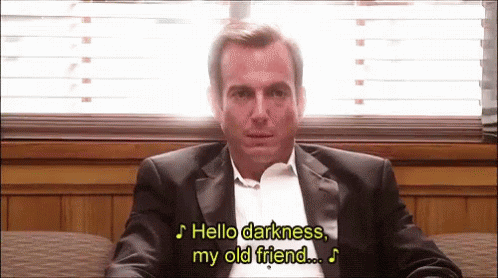Grognards, by their very nature, have stuck with the game for decades, and quite likely have bought a significant portion of the offerings being put out during that time and/or brought many other people into the hobby who themselves became consumers, at least for a time. Grognards are, in other words, the
vital few.
Unfortunately, there's a pretty big problem with excessive focus on grognards, one that many, many dead MMOs have encountered on their slow, painful declines: The "vital few" are also the
deadly many, if they're allowed to
become the many.
The "vital few" become dangerous to a game's health when they get chased at the expense of most other considerations. Worse, it's a terrible siren song, because by chasing those "vital few," you almost always earn significantly more in the
short term, but destroy the long-term health of a game in the process. This is how many widely-disliked gaming companies make their profits: they buy out MMOs that are in decline, slash staff down to a skeleton crew, prioritize low-effort high-yield products that game-loyalists and hardcore dedicated players will snap up, ignore the onboarding process for new players, and squeeze every last drop out of pre-existing material they can. This drives the operating cost down to almost nothing, while boosting incomes
temporarily sky-high. For a year, maybe a couple years (which is an age in video game time), this can even look sustainable--but what's going on under the hood is the slow hollowing-out and breakdown of the community that keeps the game alive.
Once the community has nothing left to hollow out, players start drifting away
en masse. You always lose
some players over time, that's just the nature of the beast, doesn't matter what product you're selling you will lose part of your customer base (at the very least, because customers have a frustrating habit of
dying a small percentage of the time.) But once the community goodwill and remaining creative and social capital have been exhausted, people notice. Quality declines, interest wanes, and the (supposedly) non-"vital few" disappear, often at an alarmingly fast rate. The "vital few" linger on so long as they can continue to bear doing so, because humans are weird about commitment and not leaving a relationship they've grown used to even when it's bad for them. ("...all experience hath shewn, that mankind are more disposed to suffer, while evils are sufferable, than to right themselves by abolishing the forms to which they are accustomed.")
And, you may note, there's certain similarities between the above process, which has happened
many times with MMOs, and what happened with 5e. It was an edition incredibly self-consciously targeting "lapsed" fans and the
appearance of traditionalism; the corporate overlords cut WotC staff down to a skeleton crew, to the point that a
single person being on jury duty was enough to delay important work; early on, products were primarily aimed at the "vital few."
But then that started to change, didn't it? And the "vital few" started to get upset that they weren't the ones primarily catered to. (Consider the hue and cry about the "Disneyfication" of D&D products over the last year or two, or the
anger about alignment being largely dropped, or flexible stat bonuses, or other such changes.) WotC has started (whether or not they realize it) to address the whole, not just the "vital few," because it turns out those allegedly non-"vital few" players are actually super important for ensuring that the "vital few" actually do keep playing.
Pissing off the "vital few" completely is unwise, to be sure. The 80/20 rule remains relevant; 80% of your profits come from 20% of your customers, or thereabouts. But catering to them exclusively is
worse in the long run, even if it is great in the short run. You can always, at least in theory, grow a
new "vital few" focused on a different set of priorities, so long as you survive the lean times before the new one grows. It's very difficult--as WotC is seeing
right now--to pull back from heavy focus on the so-called "vital few," but if you can't, if you get pulled deeper and deeper into their gravity well, you will eventually crash.
I wonder how many of those new players will show the same level of dedication when D&D's current cultural apogee inevitably wanes?
Well, per the Pareto principle, probably about 20%. Which, not-so-coincidentally, is (very roughly) the expected proportion of DMs out of the whole population.
But perhaps we should keep in mind the lesson of video rental stores, as mentioned in the Wiki article you linked, and which reinforces the points I made above: the video stores had to offer rarely-watched tapes like
Gone With the Wind and
Casablanca, even though these were basically just taking up shelf space for negative net profit, because
not having these videos available for rent made it seem like the store had an inadequate library.
Ignoring or skimping on service for the 80% of your customers that only bring in 20% of your business is a great way to borrow tomorrow's profits for today. The 20%
need the 80% in order to exist, even if they often look down their noses at the 80%.




